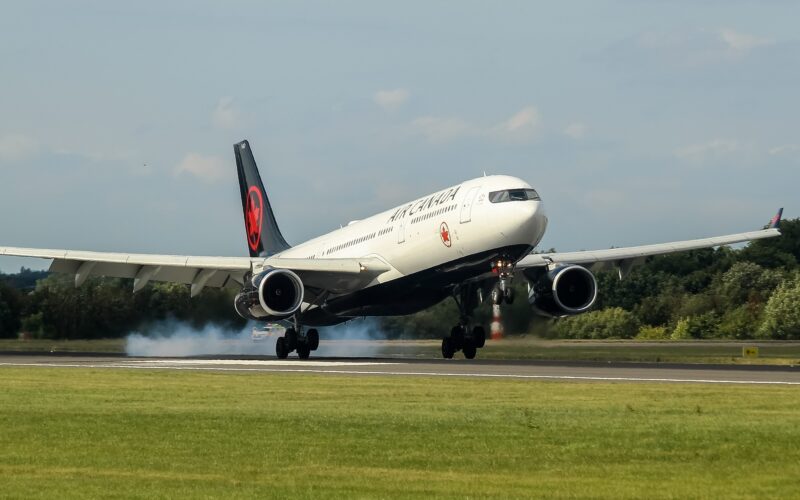Air Canada has chosen to use Airbus’ Descent Profile Optimization (DPO) solution for its A320 and A320 aircraft, with the aim of becoming more fuel efficient and, subsequently, more sustainable.
According to Airbus, DPO, an enhancement to the aircraft’s Flight Management System (FMS) performance database, will be installed on 48 A320ceo and 18 A330ceo Air Canada aircraft. The solution will reduce the fuel burn and subsequently, the number of CO2 emissions, as the DPO optimizes an aircraft’s flight trajectory during its descent to an airport.
“Air Canada has committed to an ambitious goal of achieving net zero carbon neutrality by 2050. One of the measures we will use to achieve this target is through our operations by flying aircraft more efficiently to reduce fuel burn,” stated Murray Strom, the Senior Vice President of Flight Operations and Maintenance at Air Canada. Strom also said that consuming less fuel helps the airline ensure its financial stability, because “fuel is typically one of the airline’s greatest expenses”.
The software-only upgrade enables aircraft to use an optimum engine model to compute the profile of the descent, requesting less fuel when the engine is using idle thrust. By reducing fuel consumption, it proportionally reduces CO2 and NOx emissions, as well as maximizes the time an aircraft spends at cruise altitude, as the system sets “the top of descent later in the profile,” Airbus explained.
“The inefficient level-off stage is reduced by the FMS during the computation of the profile, without affecting the approach speed of the final approach,” the Original Equipment Manufacturer (OEM) noted.
According to Dominik Wacht, the manufacturer’s Head of Customer Services for North America, the solution “will help Air Canada achieve an estimated 70 tons of fuel per aircraft/per year on their A320 fleet (220 tons eq C02), and an estimated 110 tons per aircraft/per year on their A330 fleet (340 tons eq C02)”.
The DPO will also bring the current engine option (ceo) up to the standard of operations of the new engine option (neo) fleet, further contributing to Air Canada’s decarbonization goals.

